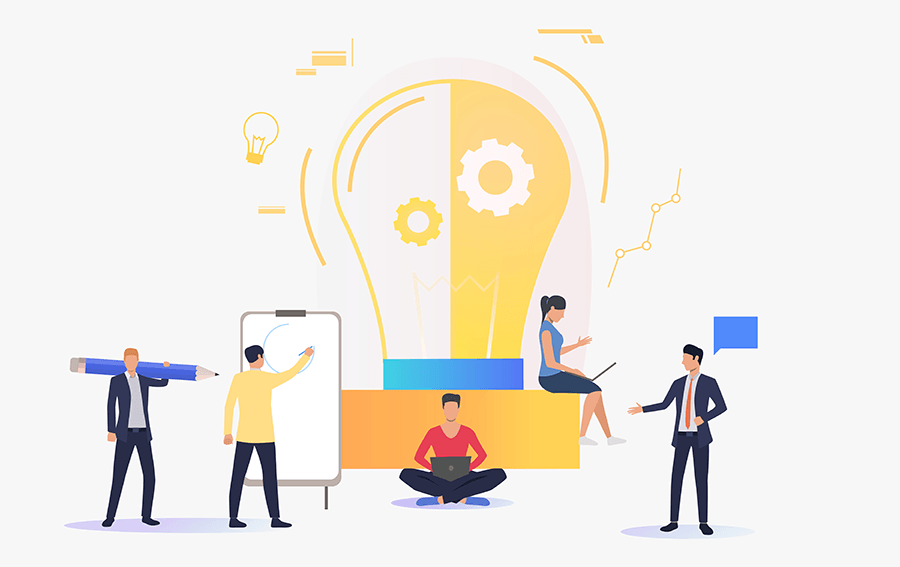
Future Of L&D
If we go back just a decade ago, HR or Learning and Development departments were completely different from what they are now. It was a time when paperwork, manual quality assessments, and feedback loops were in use. Honestly, it feels like a lifetime ago. Since then industry has developed and evolved fives times faster, combined with technology development and a combination of advanced practices.
Therefore it is no surprise that those resting on traditional L&D methods and tools may struggle with a modern world rapidly chasing digital. And after the pandemic, it has kind of leveraged the changes. So, what will the future of L&D look like in the next decade?
Artificial intelligence
If we look around, almost everything has some kind of artificial intelligence in it. Be it the assistant on our phones, live traffic update or navigation system for directions, or even the autopilot flying the plane taking you away to a certain place. Artificial intelligence has been elevated to a pedestal upon which it infiltrates our both personal and professional life.
Even though it has enhanced services thus far, AI has a lot more potential to change the industry entirely.
There are still endless possibilities to explore. With machine learning evolving as it has over the last decade, it is not beyond the realm of possibility that within the next decade training programmes can be written and delivered to agents identified by AI without the need for human input entirely.
Micro-learning
According to research, human attention span has markedly decreased in just 15 years. In 2000, it was 12 seconds. Now, 15 years later, it's shrunk to 8.25 seconds.
Businesses have now adapted to this concern by creating bite-sized resources and need-based online courses for clients, aka microlearning. Long-form content has absolutely no future unless they are converted into courses, lessons, and activities making it easier for customers to address their needs and align with the attention span of the modern learner.
Game-based learning
Game-based learning is an exciting model of learning. While this has started getting adopted fairly recently, organizations are understanding the benefits of including this model as part of their learning pedagogy. Game-based learning refers to the packaging and delivering of learning and development content in the form of games. Game-based training not only makes learning exciting but also fast-tracks the entire learning process.
Employees are increasingly viewing learning as an exciting and entertaining way to update their skills and knowledge, rather than as a burden. Rewards, points, certifications and other types of social recognition are just some of the features of game-based learning that motivate learners and inspire them to build their knowledge and skills.
Personalised learning
No two people are the same, nor is their method of learning. Some like visuals, some to read, some like to watch videos and some like face-to-face instructions. Personalized and adaptive learning will continue to be in demand as it serves the unique needs and L&D teams fight for engagement.
To do this, businesses will rely on the power of learning management systems and other personalized-centric LMS features — think properties — to create unique content that addresses the immediate needs of their customers, employees or partners.
Personalized learning programs can help employees stay engaged and motivated by suggesting content that is relevant to them. It can also provide some structure to prevent information overload and confusion. Additionally, learning content suggestions can help close the skills gap by suggesting courses that would be beneficial for employees to take.
Future of L&D today and beyond
We can see how L&D teams are challenged with figuring out how to train a global workforce that is rapidly changing. The current and next generation of employees needs quality learning experiences to stay engaged and to learn the skills they need to be successful in the evolving workplace.
While the constant evolution can be hard to keep up with, innovative learning teams will have to look at various opportunities to differentiate themselves by providing best-in-class experiences — before the competition.
And with technology continuously evolving and with boomers retiring, the talent of the future will need to be expert communicators, strong leaders, and be able to adapt to using new methods and tools often. L&D teams should look for talent management solutions they can use to train employees, enhance their skills and prepare them for the learning curve coming in the next decade.
TeamLease EdTech with its expertise in hiring, training and being in the market for decades can help you take your learning programs into the future. If you want to know how please click on the link here.
